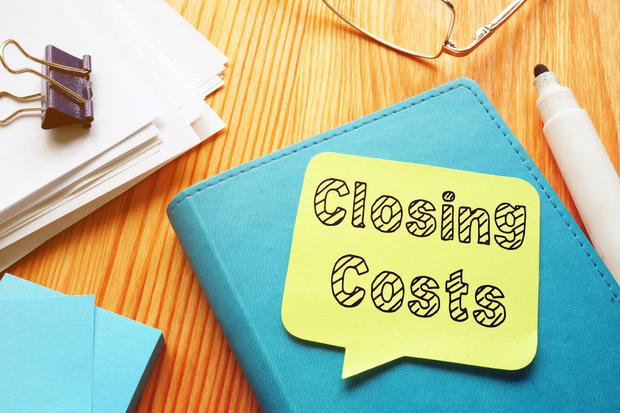Getty Images/iStockphoto
If you’re a homeowner looking for extra cash to finance a major purchase, pay off debt or fill a budget gap, you don’t have to turn to high-interest financing options like credit cards or credit cards. personal loan. There is a funding source closer than you may realize: your home.
When you’ve lived in your home for a while and are paying off your mortgage, you build Home is equal. You can tap into this equity in the form of a Home equity loan or Home Equity Line of Credit (HELOC)Often at significantly lower rates than other types of financing.
But you must consider the whole picture. In addition to any interest you owe on these loans, you’ll also receive closing costs when the transaction is finalized. In this article, we’ll outline the fees you should factor into the cost of getting a home equity loan or HELOC.
If you think a home equity loan or HELOC might be right for you, start exploring your options here.
How much does a HELOC, home equity loan close off cost?
Closing costs range from 2% to 5% of the total loan amount. You may be able to roll them over to the loan balance, but that means you’ll pay higher interest over the course of the loan. These costs include:
- Origination Fee: Lenders charge an origination fee for disbursing loans. They can use these fees to cover costs related to application processing, underwriting, loan funding and other administrative services. The amount of this fee varies by lender and can be a flat amount or a percentage of the loan amount.
- Credit Report Fees: yours Credit score Helps lenders determine how likely you are to repay the loan. To check your score, they pull your credit report. It usually costs between $20 and $50.
- Assessment Fee: Since home equity is based on loan and HELOC amounts Your total home equity, lenders usually require an appraisal to get an accurate picture of your home’s current market value. The fee averages $350 for single-family homes up to 2,000 square feet, according to Home Advisor. The fee increases by $25 for each additional 500 square feet.
- Title Fee: A title search checks to see if there are any liens (legal claims) on the property you’re pulling equity from, which could hinder your ability to get a loan. Title fees typically range from $75 to $250 depending on the home’s location.
- Document Preparation Fee: Processing and closing a loan requires a lot of paperwork as well as attorney fees and notary signatures. These costs vary by lender.
- Filing Fee: Because your home serves as collateral for your home equity loan or HELOC, it creates a lien on your property. This lien must be filed with your county recorder, such as your county clerk’s office. Filing fees vary by county but are typically $20 to $50.
- Points: Some lenders allow you to pay more upfront in the form of points. as Consumer Financial Protection Bureau (CFPB) Explains, “Points allow you to make a tradeoff between your upfront cost and your monthly payment. By paying points, you pay more upfront, but you get a lower interest rate and therefore pay less over time.” One point is equal to 1% of the total amount you borrow. HELOCs generally do not use points.
Additional HELOC costs must be considered
While home equity loans and HELOCs have similar closing fees, HELOCs can come with additional costs, which vary by lender. These are:
- Annual Fee: Some HELOCs charge an annual fee each year the credit line is opened. You must pay this fee whether or not you withdraw funds from the HELOC during the year.
- Transaction costs: If your lender charges a transaction fee, you’ll pay a fee each time you draw from your line of credit.
- Inactivity Fee: If you don’t make a certain number of transactions within a certain period of time, your lender may charge you an inactivity fee.
- Early Termination Fee: Some lenders charge you a penalty for paying off and closing your HELOC before the end of the term. You may have the option to pay off the line of credit, but keep it open until it expires to avoid these fees.
Check out home equity loan and HELOC rates today to see what you may qualify for.
Bottom line
Some lenders offer no-closing-cost home equity loans and HELOCs, but these products typically have high interest rates and early closing fees. If your lender doesn’t, or if you want to go the traditional route, there are ways you can lower your closing costs.
Before applying for a home equity loan or line of credit, Increase your credit score And lower your debt-to-income (DTI) ratio by paying down existing debt. This can help you qualify for a better rate when you apply. When you’re ready to start searching, carefully compare your options and don’t be afraid to discuss closing costs with lenders. They may or may not be flexible, but it doesn’t hurt to ask.
Thanks for reading CBS News.
Create your free account or login
For more features.


No Comments
Leave a comment Cancel